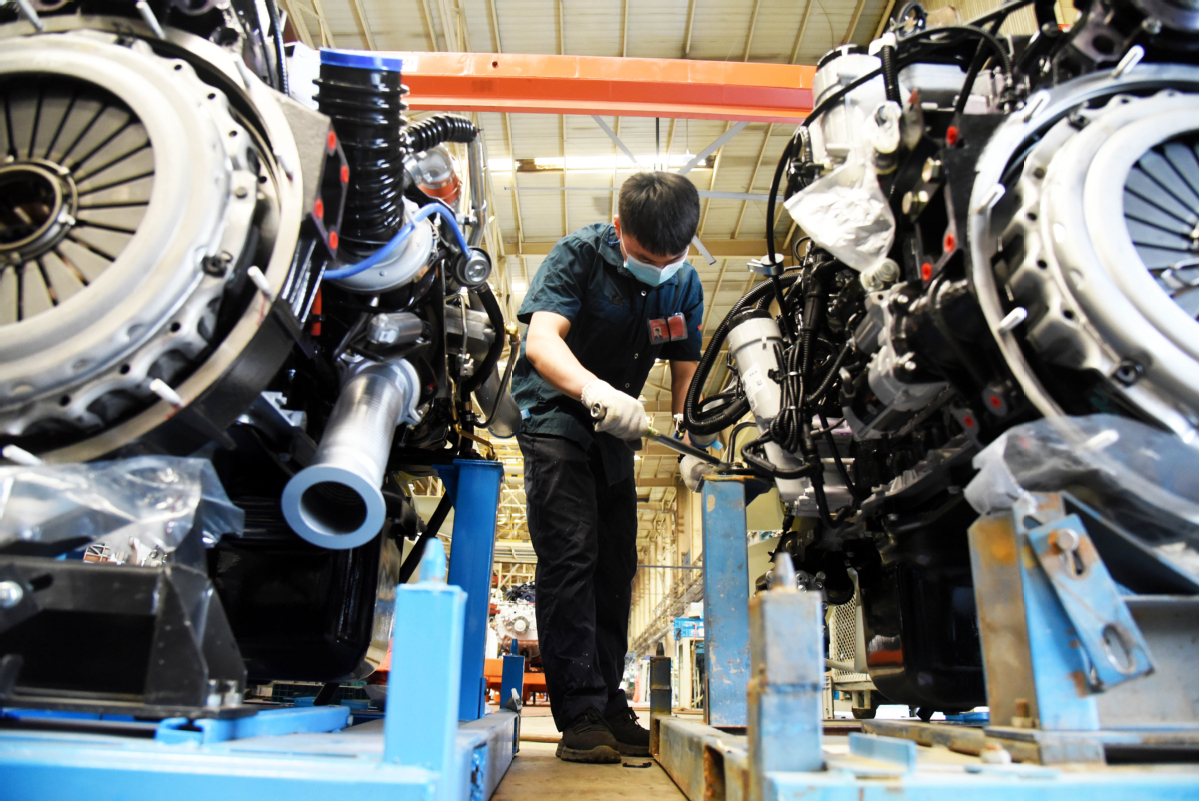FTZs sustain foreign trade


Pilot zones with high standard to be set up in nation, says ministry
China's key free trade zones saw robust growth in foreign investment and trade during the first seven months of the year despite mounting downside pressures and a sluggish global economy due to the COVID-19 epidemic, the Ministry of Commerce said on Wednesday.
Tang Wenhong, director of the department of pilot free trade zones and free trade ports at the Ministry of Commerce, said the pilot FTZs have played a key role in stabilizing foreign trade and investment.
"The FTZs have been working on COVID-19 prevention and control efforts and also on resolving any issues that companies are facing with regard to work and production resumption, such as financing and lack of workers," Tang said during a media briefing.
Six pilot FTZs in Shandong, Jiangsu, Guangxi, Hebei, Yunnan and Heilongjiang, as well as Shanghai's Lingang Area, a newly launched section of the Shanghai FTZ, attracted 13.11 billion yuan ($1.92 billion) in foreign investment during the first seven months, accounting for 5.8 percent of the total foreign investment in those areas. Foreign trade in the pilot FTZs reached 660.76 billion yuan, accounting for 10.8 percent of the total foreign trade in the regions.
"Facing a complicated and grim international situation and severe global economic recession, global trade and investment continues to be at a low ebb," Tang said.
The ministry said it will build pilot FTZs with high standards and grant them greater autonomy in reform and opening-up.
"As China has made considerable progress in preventing and controlling the pandemic, I believe the construction of pilot FTZs with high standards will help further stabilize the foreign trade and investment and build a high-level open economic system," said Tang.
"We will continue to deepen reforms and promote higher standards of opening-up and work toward a new model of development in which the domestic economic network takes the primary role and the domestic and international economic networks complement each other."
Last August, China established the new pilot FTZs, extending strategic trials to border areas to promote trade ties with neighboring countries and create new highland for reforms and opening-up. Till now, nearly 80 percent of the preset 713 pilot reform tasks have been completed, the ministry said.
Bai Ming, deputy director of the international market research institute under the China Academy of International Trade and Economic Cooperation, said the pilot FTZs will be able to offer successful practices for others to emulate.
"With the help of the government's effective measures to prevent and control the novel coronavirus pandemic and targeted policies for facilitating companies' orderly production restarts, pilot FTZs will help promote trade and economic ties with other countries," said Bai.
According to Bai, while China is working to give full paly to its massive domestic market, it is still committed to promoting economic globalization. "Building pilot FTZs with high standards indicates the country's firm determination to build an open economy within the framework of globalization. China also needs to collect global resources to boost its strong domestic market, and FTZs will play a key role in promoting the efficient allocation of a wide range of resources."
Pang Chaoran, a researcher at the CAITEC, said the currently established 18 free trade zones and Hainan free trade port will help boost regional development and expand the reach of the Belt and Road Initiative.
"The development of FTZs will help deepen reforms and opening-up on a larger scale, in a broader field, and at a deeper level in the new era," Pang said. "In the next step, the pilot FTZs should align with international (economic and trade) rules, further promote efficient and free flow of production factors, push forward trade and investment liberalization and facilitation, create a better business environment and promote the innovation of institutional integration."




































